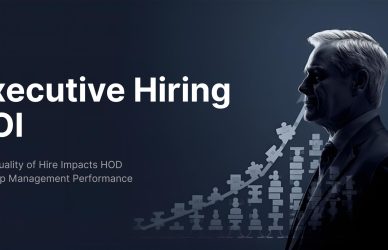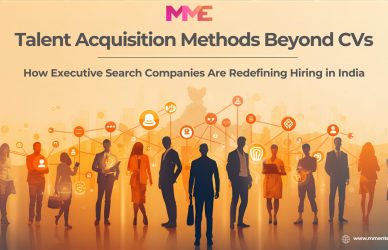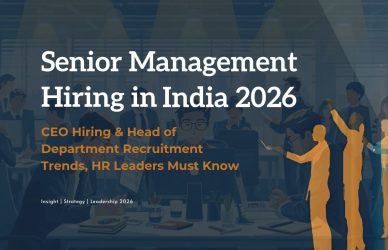The Introduction: Understanding the Role of EOR Services
The Evolution of Employer of Record (EOR) Services
Employer of Record (EOR) services have revolutionized global workforce management by enabling companies to expand internationally without establishing a legal entity in foreign markets. Initially perceived as an administrative solution, EOR services have evolved into a strategic necessity for businesses aiming to navigate complex labor regulations, taxation, and compliance challenges.
The Growing Demand for EOR Services in 2025
As remote work, cross-border hiring, and global mobility trends continue to rise, the demand for EOR services is reaching unprecedented levels. Companies are increasingly seeking agile workforce solutions that allow them to recruit top talent worldwide while ensuring compliance with local employment laws. EOR providers simplify international hiring by managing employee contracts, payroll processing, and tax obligations on behalf of businesses.
Strategic Importance of EOR in a Globalized Economy
Beyond administrative functions, EOR providers now play a pivotal role in business growth strategies. They help organizations enter new markets quickly, mitigate legal risks, and maintain regulatory compliance. By leveraging an EOR, businesses can focus on core operations while experts handle employment complexities, ensuring seamless workforce integration across different geographies.
Technology and Compliance: The Future of EOR Services
The rapid advancements in HR technology and automation have further enhanced EOR capabilities. AI-driven payroll systems, compliance monitoring tools, and digital onboarding solutions are transforming how companies manage global employees. In 2025, EOR services continue to be a crucial enabler of workforce flexibility, helping companies adapt to shifting labor regulations and market demands efficiently.

What Makes 2025 a Pivotal Year for EOR Services?
Global Economic Shifts Driving International Expansion
The post-pandemic recovery has reshaped global markets, compelling businesses to realign supply chains, diversify workforce locations, and explore new growth opportunities. Companies are expanding beyond their home countries to mitigate risks and tap into emerging talent pools. EOR providers are playing a crucial role in facilitating this expansion by offering seamless hiring solutions, ensuring compliance with local labor laws, and handling payroll administration.
The Rise of Remote-First Business Models
Remote work has transitioned from being a temporary necessity to a long-term strategy for many companies. Organizations are embracing remote-first models to access top-tier talent worldwide, leading to a surge in cross-border employment. However, hiring remote employees across different jurisdictions presents legal and logistical challenges. EOR services provide a compliant framework for global hiring, managing employment contracts, tax withholdings, and benefits administration, allowing businesses to focus on productivity without legal concerns.
Navigating Complex and Evolving Regulations
Labor laws, tax policies, and visa regulations are becoming increasingly complex and dynamic across different countries. Governments are tightening employment regulations, enforcing stricter compliance measures, and redefining taxation rules for global workers. For businesses, keeping up with these changes can be a daunting task. EOR providers simplify compliance by ensuring all employment practices align with local laws, reducing the risks of fines, penalties, and legal disputes.
Addressing Talent Shortages in Developed Markets
The demand for skilled professionals in developed markets such as the U.S., U.K., and Europe is outpacing the local talent supply. To bridge this gap, companies are looking toward emerging economies where a large pool of qualified candidates is available. However, hiring in foreign markets requires adherence to country-specific employment regulations. EOR services provide a streamlined solution by managing payroll, benefits, and compliance, enabling companies to onboard international employees efficiently.
Cost-Efficiency and Speed in Global Expansion
Setting up a legal entity in a foreign country is time-consuming and costly, involving complex administrative procedures and legal formalities. EOR services eliminate these challenges, allowing businesses to expand their workforce rapidly without the financial burden of establishing local subsidiaries. By leveraging EOR solutions, companies can hire talent within days, ensuring operational agility while maintaining cost efficiency.
These combined factors make 2025 a defining year for EOR adoption, as organizations seek scalable, compliant, and flexible workforce solutions to stay competitive in an increasingly globalized market.

The Key Benefits of EOR Services in 2025
1. Compliance with Local Labor Laws
Navigating international labor laws can be complex, as employment regulations vary significantly across countries. Non-compliance can lead to hefty fines, legal disputes, and reputational damage. EOR providers ensure full compliance by managing employment contracts, tax filings, social security contributions, and benefits administration. They stay updated on ever-changing labor laws, helping businesses mitigate legal risks and focus on their core operations without worrying about regulatory challenges.
2. Faster Market Entry
Expanding into a new country traditionally requires setting up a local entity, which can take several months and involve extensive legal formalities. EOR services eliminate this hurdle by acting as the legal employer, allowing businesses to hire employees in foreign markets within weeks. This agility is particularly beneficial for startups and enterprises looking to test new markets or establish a presence in multiple regions without long-term commitments.
3. Cost Savings on HR & Legal Administration
Setting up subsidiaries, hiring local HR teams, and managing compliance internally can be expensive and time-consuming. EOR services consolidate payroll, tax management, and employee benefits, reducing the financial burden of maintaining a local HR and legal department. Businesses can scale their global workforce efficiently without the overhead costs associated with entity establishment and administrative complexities.
4. Seamless Payroll Management
Payroll processing across multiple countries involves handling diverse tax systems, social security contributions, and salary structures. EOR providers streamline payroll management by ensuring employees are paid accurately and on time in their local currency. They manage tax withholdings, benefits, and deductions in accordance with local laws, preventing payroll errors that could lead to compliance violations or employee dissatisfaction.
5. Access to a Global Talent Pool
One of the biggest challenges businesses face today is sourcing skilled professionals. EOR services remove geographical barriers, allowing companies to recruit the best talent regardless of location. With an EOR, businesses can hire remote employees, freelancers, and full-time staff in different countries without needing a legal presence. This flexibility gives organizations a competitive advantage in attracting top-tier professionals from diverse backgrounds.
These benefits make EOR services a vital asset for global businesses in 2025, enabling seamless international expansion, regulatory compliance, and workforce flexibility.

Industries Leveraging EOR Services in 2025
1. IT & Tech
The IT and tech industry has been at the forefront of adopting EOR services, given the sector’s heavy reliance on remote work and global talent acquisition. With a growing demand for software developers, cybersecurity experts, data scientists, and AI specialists, tech companies are expanding their teams across different countries. EOR providers help IT firms seamlessly hire international employees, ensuring compliance with local employment laws, managing payroll in multiple currencies, and facilitating smooth onboarding processes. By leveraging EOR solutions, tech companies can quickly scale their global workforce without the administrative burden of setting up legal entities in foreign markets.
2. Healthcare & Pharmaceuticals
The healthcare and pharmaceutical industries require specialized talent across various regions to support research, clinical trials, and patient care. Given the strict regulatory environment governing these sectors, compliance with local labor laws and healthcare regulations is critical. EOR services assist healthcare organizations in hiring doctors, medical researchers, and healthcare professionals in different countries while ensuring full compliance with regional employment laws. Additionally, pharmaceutical companies expanding into new markets rely on EOR providers to manage international teams for drug development, regulatory affairs, and supply chain logistics, helping them maintain efficiency while adhering to compliance requirements.
3. E-Commerce & Retail
As e-commerce and retail businesses continue to expand globally, they require a diverse workforce to manage logistics, marketing, customer support, and supply chain operations. EOR services enable these companies to quickly hire talent in different countries without establishing a legal entity. By handling local employment contracts, payroll management, and benefits administration, EOR providers allow e-commerce brands to focus on market expansion and customer acquisition. This flexibility is particularly valuable for online marketplaces and direct-to-consumer (DTC) brands that need localized teams to handle region-specific marketing strategies and customer service operations.
4. Finance & Banking
The finance and banking sector operates in a highly regulated environment, making international hiring complex due to varying compliance and tax laws. Banks, investment firms, and fintech companies leverage EOR services to hire financial analysts, compliance officers, and customer service teams across different regions. By using EOR solutions, financial institutions can navigate intricate labor regulations, ensuring adherence to tax policies and data security standards while streamlining their global workforce management. Fintech startups, in particular, benefit from EOR providers by quickly expanding into new markets without the lengthy process of setting up local legal structures.
5. Manufacturing & Supply Chain
Multinational manufacturing companies often need to set up production facilities or distribution networks in different countries. Hiring skilled workers, engineers, and supply chain managers in these regions requires compliance with labor laws and occupational safety regulations. EOR services facilitate seamless hiring for manufacturing firms by managing employment contracts, payroll, and benefits, eliminating the need to establish local subsidiaries. This is especially beneficial for companies expanding their supply chains to mitigate geopolitical risks and diversify sourcing strategies.
These industries highlight the growing reliance on EOR solutions in 2025, as businesses seek efficient, compliant, and cost-effective ways to build a global workforce.

Global Expansion: How EOR Services Facilitate International Hiring
Overcoming Legal Complexities in Different Labor Markets
Expanding into a new country requires businesses to comply with local employment laws, which can be complex and constantly evolving. Each country has unique regulations regarding contracts, employee rights, working hours, and termination policies. Failure to adhere to these laws can lead to legal disputes and financial penalties. EOR services help businesses navigate these complexities by acting as the legal employer, ensuring full compliance with local labor laws while allowing companies to focus on their core operations.
Navigating Taxation and Social Security Regulations
Taxation and social security requirements differ significantly across jurisdictions, making payroll management a daunting task for international employers. Businesses must account for income tax, social contributions, pension schemes, and other statutory benefits when hiring in foreign markets. EOR providers streamline this process by managing payroll, withholding taxes, and ensuring timely social security contributions. By leveraging an EOR, companies eliminate the risk of non-compliance and avoid costly tax-related penalties.
Bridging Cultural and Language Barriers
Cultural and language differences can create obstacles in hiring, onboarding, and managing international employees. Understanding workplace norms, employee expectations, and communication styles in different regions is crucial for successful expansion. The EOR providers have local expertise and HR professionals who facilitate smooth integration, ensuring businesses adhere to cultural norms and maintain effective communication with their global workforce.
EOR Services as a Solution for International Hiring
EOR services eliminate the need for businesses to establish a legal entity in a foreign country, allowing them to hire and pay employees seamlessly. The EOR acts as the official employer, managing employment contracts, benefits administration, and compliance with local labor laws. This model provides businesses with a flexible, cost-effective solution to scale globally without the administrative burden of entity setup and regulatory compliance.
Case Study: A U.S. Company Expanding into India
A U.S.-based software company plans to expand its operations in India to tap into the country’s highly skilled IT talent. Traditionally, this would involve setting up a legal entity, which could take months and require significant legal and financial resources.
By partnering with an EOR provider, the company is able to:
- Onboard employees within weeks instead of months.
- Ensure compliance with Indian labor laws, including minimum wages, tax deductions, and social security contributions.
- Manage payroll efficiently, ensuring employees are paid in the local currency with proper tax withholdings.
- Provide statutory benefits such as provident fund contributions and employee insurance, in line with Indian regulations.
This approach allows the U.S. company to access India’s vast talent pool while avoiding the complexities of setting up a local subsidiary. By leveraging EOR services, businesses can enter new markets swiftly and efficiently, reducing risks and operational challenges.

EOR and Compliance: Mitigating Legal Risks in 2025
1. Avoiding Employee Misclassification
One of the biggest compliance challenges for businesses expanding internationally is the risk of employee misclassification. Many companies hire independent contractors to bypass complex labor laws, but misclassifying full-time employees as contractors can lead to severe legal and financial repercussions, including fines, penalties, and back pay obligations. Governments worldwide are tightening employment regulations to prevent such misclassification.
EOR providers mitigate this risk by ensuring proper worker classification based on local labor laws. They structure employment agreements correctly, ensuring that employees receive the appropriate benefits, social security contributions, and legal protections. By relying on an EOR, businesses can confidently hire global talent without the risk of non-compliance with classification laws.
2. Managing Global Taxation & Payroll
Every country has unique tax regulations, payroll processing requirements, and social security contributions, making international hiring a complex task for businesses. Companies expanding into foreign markets must navigate local tax laws, manage payroll deductions accurately, and ensure timely reporting to avoid penalties.
EOR services streamline global payroll management by handling tax filings, salary payments, and compliance with social security obligations. They ensure that employees are paid in their local currency, taxes are deducted correctly, and financial regulations are met. This not only reduces the administrative burden on businesses but also prevents costly errors in tax compliance that could lead to legal scrutiny.
3. Reducing Legal Liabilities
When hiring employees in a foreign country, businesses must adhere to strict labor laws, employment contracts, and termination policies. Non-compliance with these regulations can expose companies to lawsuits, severance disputes, and reputational risks.
By partnering with an EOR, businesses shift the legal responsibilities of employment to the EOR provider. The EOR acts as the official employer on paper, handling all legal aspects of hiring, contracts, and employee benefits. This reduces a company’s direct liabilities and ensures that all employment practices are legally sound. In case of disputes, the EOR assumes responsibility, protecting businesses from legal entanglements in foreign jurisdictions.
EOR: A Compliance Shield for Global Businesses in 2025
With labor laws evolving rapidly and regulatory scrutiny increasing in many countries, businesses must prioritize compliance to avoid financial and legal risks. EOR services act as a compliance shield, ensuring that companies meet employment laws, tax regulations, and payroll obligations without the need for extensive legal teams or local entities.
By leveraging EOR solutions, businesses can confidently expand their global workforce while staying compliant, reducing risks, and focusing on their strategic growth initiatives.

Technology and Automation in EOR Services
Enhancing Payroll Processing Speed with Automation
In 2025, EOR providers leverage automation and AI-driven payroll solutions to process salaries with greater speed and accuracy. Traditional payroll management across multiple countries involves complex tax structures, varying labor laws, and currency conversions. Modern EOR platforms automate these processes, ensuring that employees are paid accurately and on time, regardless of their location. AI-driven payroll reconciliation further reduces errors by cross-verifying payment details, tax deductions, and benefits allocation, improving efficiency and compliance.
Strengthening Data Security and Compliance Tracking
As global employment regulations evolve, compliance tracking has become a critical component of EOR services. Cloud-based HR systems integrated with AI-powered compliance dashboards allow businesses to monitor and manage workforce regulations in real-time. These platforms automatically update legal requirements, track tax obligations, and flag potential compliance risks before they become legal issues.
Data security is another key focus, with EOR providers implementing advanced encryption, multi-factor authentication, and secure data storage solutions to protect employee records and financial information. AI-driven fraud detection mechanisms further enhance security by identifying anomalies in payroll transactions and access logs.
Streamlining Employee Onboarding with AI-Powered Systems
A seamless onboarding experience is essential for remote and international employees. Modern EOR platforms use AI-driven onboarding tools to automate contract generation, document verification, and background checks. Employees can complete their paperwork digitally through secure cloud platforms, eliminating the need for manual processing.
EOR platforms also offer multilingual support and digital onboarding workflows customized to regional employment laws. Automated task management systems ensure that new hires receive timely updates on training, benefits enrollment, and compliance requirements, reducing administrative workload and improving the employee experience.
The Future of EOR: AI-Powered HR Operations
EOR providers in 2025 continue to adopt AI-powered contract management, automated payroll reconciliation, and compliance dashboards to create a more agile and efficient HR ecosystem. These technological advancements not only reduce human errors but also allow businesses to scale their global workforce seamlessly while maintaining regulatory compliance. By leveraging automation and AI, EOR services are transforming international workforce management, enabling businesses to operate with greater speed, security, and efficiency.

EOR vs. Traditional Hiring: A 2025 Perspective
Compliance: Fully Managed vs. In-House Responsibility
One of the biggest challenges businesses face when expanding internationally is ensuring compliance with local labor laws. Traditional hiring requires companies to have in-house legal and HR teams to navigate complex regulations, employment contracts, tax laws, and social security contributions. This can be time-consuming and prone to errors, leading to legal risks and financial penalties.
EOR services, on the other hand, take full responsibility for compliance, ensuring that all employment contracts, payroll processing, and benefits administration align with local laws. By acting as the legal employer, EOR providers reduce the compliance burden on businesses, allowing them to focus on their core operations.
Cost: Lower Upfront Costs vs. High Legal & Administrative Expenses
Setting up a legal entity in a foreign country involves significant costs, including registration fees, legal consultations, and administrative expenses. Traditional hiring requires businesses to establish local HR infrastructure, hire compliance experts, and manage payroll in-house, leading to higher ongoing expenses.
EOR services offer a cost-effective alternative by eliminating the need for entity establishment. They provide a streamlined employment solution with a predictable pricing model, covering payroll, benefits, and legal compliance under a single service. This approach significantly reduces upfront investment and operational costs, making EOR services an attractive option for companies looking to expand globally without financial strain.
Speed: Fast Hiring (Weeks) vs. Lengthy Setup (Months)
Traditional hiring can take several months, especially when businesses need to establish a legal entity before recruiting employees. The process involves company registration, tax compliance setup, and obtaining necessary permits, leading to delays in market entry.
EOR services drastically reduce hiring timelines, allowing businesses to onboard employees in weeks rather than months. By leveraging an existing legal infrastructure, EOR providers enable companies to scale their workforce quickly, making them ideal for businesses that need to enter new markets swiftly or hire remote talent on short notice.
Global Hiring: Seamless vs. Complex & Time-Consuming
Expanding internationally through traditional hiring methods requires businesses to navigate different employment laws, tax regulations, and cultural considerations in each country. This complexity makes it difficult to manage a global workforce efficiently.
EOR services simplify global hiring by acting as the employer of record, handling all legal and administrative aspects of employment. Businesses can hire employees from multiple countries without setting up local entities, making global expansion seamless and hassle-free. This flexibility is particularly beneficial for companies embracing remote work and seeking to attract top talent from diverse geographical locations.
EOR services offer a hassle-free alternative to traditional hiring, providing businesses with a faster, cost-efficient, and compliant solution for global workforce expansion in 2025.

Challenges and Considerations When Choosing an EOR Provider
Reputation & Experience
Not all EOR providers offer the same level of service, and choosing the wrong partner can lead to compliance risks and operational inefficiencies. Companies must evaluate an EOR provider’s reputation by reviewing client testimonials, case studies, and industry recognition. Experienced providers with a strong track record in handling global employment complexities can offer more reliable services and better risk mitigation. Businesses should also assess the provider’s expertise in specific industries to ensure alignment with their hiring needs.
Global Coverage & Compliance Expertise
One of the key reasons for partnering with an EOR is to ensure compliance with local labor laws, tax regulations, and social security requirements. However, not all EOR providers have the same level of coverage across countries. Companies must verify whether an EOR operates in their target markets and has the necessary legal infrastructure to support seamless employment. Compliance expertise is critical, as labor laws frequently change, and failure to comply can result in financial penalties and reputational damage. The best EOR providers stay updated with evolving regulations and proactively implement compliance strategies.
Pricing Transparency
Cost-effectiveness is a major advantage of EOR services, but pricing structures vary among providers. Some EORs charge flat monthly fees, while others use percentage-based models or bundled pricing that includes payroll, benefits administration, and compliance management. Hidden fees, contract termination penalties, or unexpected charges can impact budget planning. Businesses should request clear, itemized pricing details and compare costs across different providers to ensure they are getting the best value for their investment.
Technology & Integration Capabilities
Modern EOR platforms leverage technology to streamline payroll, compliance tracking, and employee management. Companies should assess an EOR provider’s technological capabilities, including automation in payroll processing, AI-driven compliance tracking, and cloud-based HR portals for employee self-service. Additionally, integration with existing HR systems, payroll software, and workforce management tools is crucial for a smooth and efficient hiring process. A technologically advanced EOR provider enhances operational efficiency, reduces errors, and ensures a seamless experience for both employers and employees.
Choosing the Right EOR Partner for Smooth Workforce Expansion
While EOR services offer a simplified approach to global hiring, selecting the right provider is critical for success. Businesses must carefully evaluate an EOR’s reputation, global compliance expertise, pricing structure, and technological capabilities to ensure a seamless and compliant international expansion.

Conclusion: The Future of EOR Services Beyond 2025
AI-Driven Compliance Monitoring
As global labor laws continue to evolve, AI-powered compliance tools will become integral to EOR services. Automated compliance monitoring will help businesses stay ahead of regulatory changes, ensuring real-time updates on tax laws, employment contracts, and worker classification requirements. This will reduce legal risks and enhance operational efficiency, making international hiring even more seamless.
Blockchain-Based Payroll Solutions
The future of payroll management within EOR services will likely see the integration of blockchain technology. Blockchain-powered payroll systems will enhance security, transparency, and efficiency by enabling real-time cross-border transactions with reduced processing fees. Companies will benefit from faster payments, reduced fraud risks, and simplified financial record-keeping.
Greater Adoption by Startups & SMEs
While large corporations have traditionally used EOR services, startups and small-to-medium enterprises (SMEs) are expected to drive future growth. With increasing globalization and the rise of remote-first business models, smaller companies will leverage EOR solutions to access international talent without the complexities of setting up local entities. The scalability and cost-effectiveness of EOR services will make them a vital tool for businesses of all sizes.
EOR Services: The Backbone of Global Workforce Management
By 2025 and beyond, EOR services will become a fundamental part of international workforce management, enabling businesses to scale rapidly while maintaining compliance and efficiency. With advancements in AI, blockchain, and automation, EOR solutions will continue to evolve, offering even greater flexibility and security for companies navigating the complexities of global hiring.




